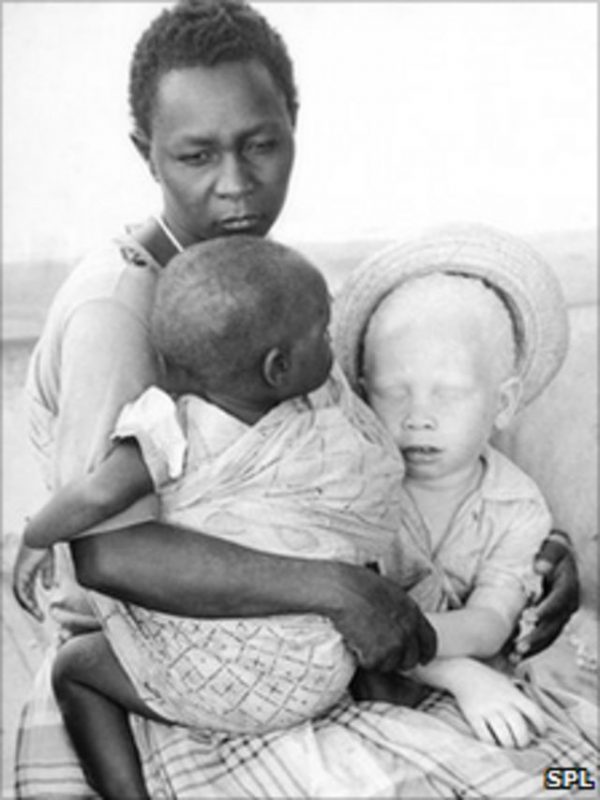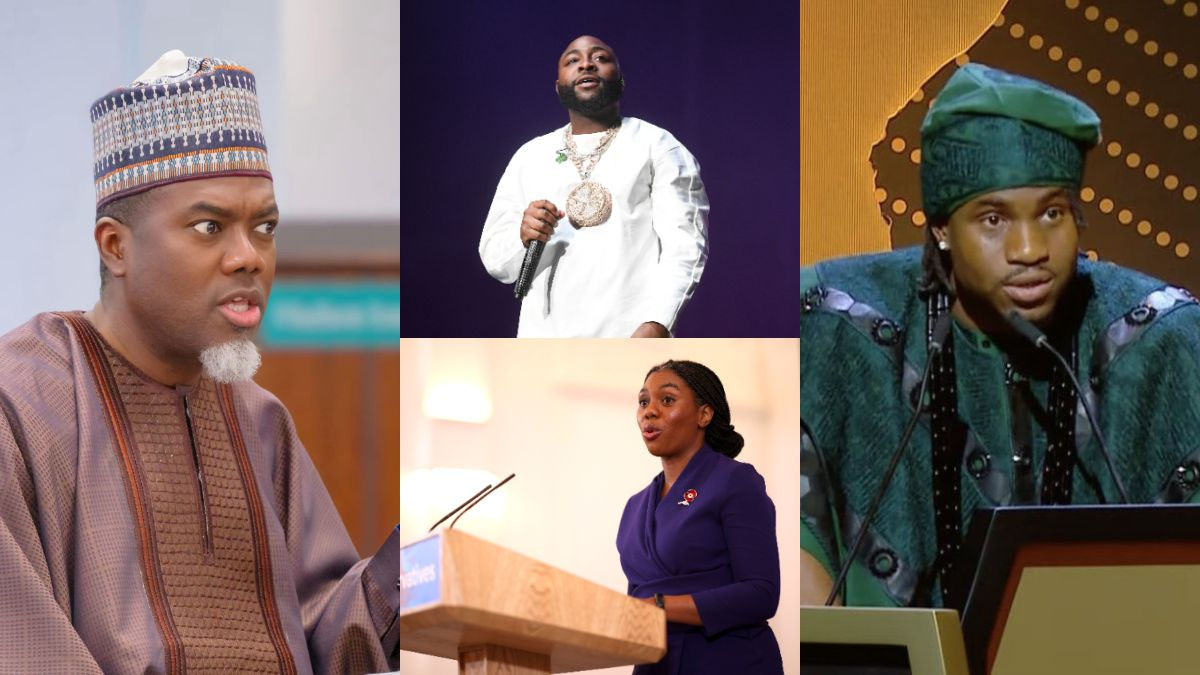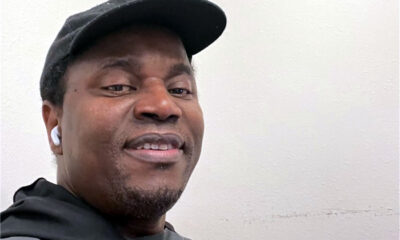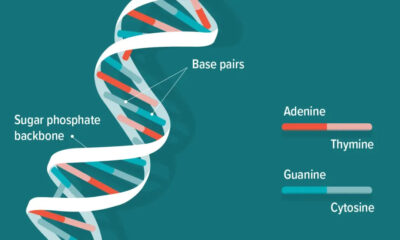Opinion
Opinion: How DNA testing may wrongly nail your wife, by Tunde Odesola

(First published in The PUNCH on October 25 and November 1, 2021)
For a breath of fresh air and to maintain my sanity, I’ll desist from talking about the retired General Muhammadu Buhari in this article. Also, I’ll resist talking about murderous Boko Haram, terrorist Fulani herdsmen, nationwide bandits, humongous corruption and bleeding nepotism which the Buhari regime will bequeath to the incoming Presidency in 2023, if Nigeria exists till then, luckily.
I understand why it’s not easy for Nobel laureate, Professor Oluwole Babatunde Soyinka, to give up hope on his 61-year-old country, Nigeria: no parent will nurture an Abiku from infancy through childhood to adolescence, and incautiously watch the heartless child climb a pawpaw tree with vegetable stalk – without shouting gbajare!
So, I understand the patriotic zeal which, for almost 70 unbroken years, has fired Soyinka up to engage in an eternal struggle for a better Nigeria.
At a point in 1965, Soyinka justifiably held, at gunpoint, the Nigerian Broadcasting Corporation, Ibadan, despite security presence; landed in jail over a pro-Biafra article in 1967, at another point, and escaped into exile in 1994 when he was sentenced to death by the rogue General, Sani Abacha, who was dragging Nigeria to the point of no return. Doubtless, the sagacious Soyinka had a brush with the law one time too many over his conviction.
The last time the white-mane literary icon wrote a novel, Season of Anomy, was 1973. His new novel, Chronicles From the Land of the Happiest People on Earth, is his third, while The Interpreters written in 1965, was his debut.
It’s the mighty shame of a nation that the same themes of corruption, hypocrisy, nepotism, ignorance, blood-letting, poverty that are Soyinka’s preoccupations in his 1965 and 1973 novels, remain his motifs in his 2021 novel.
While some global issues which Soyinka spoke to in his works have changed for the better, it’s excruciatingly painful that his country, Nigeria, remains rooted to the bottomless pit of underdevelopment despite decades of his literary and social advocacy for change.
I wish I could measure the heaviness of the soul of Africa’s foremost literary figure, Soyinka, seeing his Nigeria, the Abiku, swimming in crocodile-infested pond while giant gators glide to gobble the Abiku, together with its defiance and charmed bangle-feet.
For Soyinka, appearance and reality in Nigeria are siamese even though he faults the depiction of Nigerians as ‘happiest people on earth’ in his latest work. Soyinka’s Chronicles From the Land of the Happiest People on Earth is a stinging irony of the sorrowful Nigerian populace described by total strangers as joyful.
However, Appearance and Reality weren’t the same for me some decades ago when I served in the National Youth Service Corps in Umuopu and Aji communities of Igbo-Eze North Local Government Council of Enugu State.
Then, I had a shapely girlfriend, whose name flirts on the periphery of memory now. I think she’s Eucharia. UK, for short. Then, I shared a top-floor two-bedroomed flat with a fellow corper, James Umor, now deceased, in a storey building owned by a traditional shrink called Enwe Nwanjo,who had a son, Emma, who had a beautiful wife, and a baby girl called Kasie. Emma and his family lived on the ground floor of the main building with us. Enwe Nwanjo had died a few years before my NYSC posting, but I still met his legend in Aji as a great healer of sick minds.
UK, an ebony beauty with a dimpled smile, lived in another apartment on the top floor with us. One night something happened.
I had just returned from a journey late in the night. And the whole compound had gone to sleep. I had come out on the verandah to have a drink and smoke a cigarette. Then I heard the bed creak in UK’s room. Sleep fled from my eyes and the hair on my head stood on end.
“But UK told me she was going to Nsukka to see her parents this weekend?” I recalled silently as I tip-toed towards her door in the dark hallway.
I peeped through the keyhole, darkness stared back at me. Then, slowly, very slowly, my mind dismantled the darkness. I saw two human forms, one lying behind the other, on the small metal bed by the curtained window…
I stayed all night on the verandah smoking and shacking whiskey as the harmattan wind froze my bones, but I kept my gaze on UK’s door while I intermittently patrolled the other louvered window to her apartment, which wasn’t in full gaze.
Then, another thing happened. Around 5:30am, or thereabouts, I heard a crowd of people chatting from a distance on the hazy road to our apartment. Then, some male and female students, who lived in the compound, together with a teacher, Florence Enwe, who’s the sister of Emma, and my smiling UK, burst into view. They were all coming back home from a vigil in their catholic church!
I quietly sneaked into my apartment, relieved but still curious. I heard UK’s footfalls as she climbed the stairs and I re-emerged from my apartment. She greeted me and asked smilingly, “You no dey sleep, Kopashon?” She knocked on her door. A preteen girl of about 10 years, whom she described as her sister from Nsukka, opened the door drowsily, stretching and yawning. “Tunde, see ya life,” I said to myself silently.
This is my own experience with Appearance and Reality. While Soyinka sees Nigeria for what it truly is, the Appearance I saw in Enugu Ezike was far from Reality.
What did the 178-year-old British newspaper, The Economist, see when it described the Buhari regime as incompetent, last week? Appearance or Reality? Or both? I’ve vowed not to talk about Buhari in this piece, and I wish to be faithful to my promise. I’ll leave Buhari for now and go ahead to explore DNA testing as a realm of science where results may not always be accurate.
Despite a woman’s fidelity to her man, a DNA testing could wrongly label the faithful woman a cheat if she gave birth to a chimera baby.
Unlike the generality of humanity possessing a single and distinct set of genes, chimera individuals have at least two sets of genes, which can result in a false negative result when the genetic composition of their tissue which was sampled for DNA testing is different from their reproductive tissue.
The case of American Taylor Muhl, a 37-year-old female singer, songwriter and dancer, brings into keener perspectives the issue of genetics and the probability that DNA testing could go wrong.
Though the multiple sets of genetic compositions in chimeras differ from one individual to another, in the case of Muhl, she was her own twin. This means that her embryo swallowed the twin embryo in her mother’s womb.
The fusion of the embryos could be in the gonads, testicles, abdomen, hand, transplanted parts of the body or any part of the body.
If it was in the testicles, for instance, the child fathered by the seminal fluid of the chimera individual would likely carry the gene of the other unborn, infused twin – such that DNA tests on the children produced by the chimera will prove negative.
There’s the case of another American woman, Karen Keegan, whose own children were disproved by DNA testing, until a US court ruled that the pregnancy she had at the time in question should be recorded.
Despite being video recorded at childbirth, DNA testing conducted on Keegan’s new baby also proved that she wasn’t the mother of the child.
When the blindfolded head drops on the hard floor, kpi!, like the back-kick of an angry horse, please, know that not all guillotined heads are guilty.
That is why the Yoruba say, “Ori yeye ni Imogun, t’aise lo po.” Imogun is the Yoruba Golgotha; the place of skulls, where many innocent heads have rolled down the pit of death, spurting hot blood.
If man didn’t reach for the sky at Babel, and all languages were one, I wouldn’t be saddled with the burden of translating this Yoruba proverb into English. But, it’s ok, I’ll try.
“Ori yeye ni Imogun, t’aise lo po” alerts the heedful to the limitations of human judgment and the evil that lurks in man’s heart.
I felt like going beyond the translation of the proverb into English. So, I went in search of the Araba of Osogbo, Chief Ifeyemi Elebuibon, to unravel for me the story behind the proverb.
“Once upon a time,” Elebuibon began, “Ogunda and his friend, Irosun, had an argument. Ogunda contended that many of those beheaded at Imogun are guiltless, but Irosun disagreed, saying, “Ika to ba se, l’Oba nge,” meaning: “It’s only the offending finger that the king cuts.
“So, one night, Ogunda killed an antelope in the forest. He sneaked into Irosun’s house and smeared his sleeping friend’s hands with the blood of the kill even as he sprinkled the blood on the ground, all the way to the king’s pen.
“Very early the following morning, Irosun was still sleeping when the king’s guards broke down his door and arrested him for killing the king’s antelope. Irosun pleaded his innocence, but he was dragged away, all the same, his toes barely touching the ground.
“The guillotine was the final journey for anyone that stole from the royal farm. Irosun’s fate was sealed. He must honour a date with death.
“On the Day of Death, many people trooped out to Imogun, to watch how the thief’s head would tumble down the headful dumpsite, squirting blood.
“The masked hangman with bulging biceps and a razor-sharp sword curved at the tip like Go-to-hell advanced slowly towards the shackled Irosun. He stood at arm’s length and raised up his shiny sword to heaven for the swift strike that would cut off the neck bone, separating the head from the body.
“He brought down his sword impatiently as Ogunda stepped out, and told the truth. Irosun was shaken back to life, sweat and urine had soaked his clothes. Ogunda asked his friend if it was only the guilty that got punished. A shivering Irosun answered, ‘Ori yeye ni Imogun, t’aise lo po’.”
Globally, many women and men have been wrongly accused of not being the mothers and fathers to their biological children because they are chimeras.
Who should she forgive – DNA testing machine or her unbelieving husband – the woman wrongly accused of infidelity because the genotype of her child doesn’t match that of the biological father? Can she even ever forgive?
Who should he blame, DNA testing machine or his fate, the man wrongly denied the joy of fatherhood because he is a chimera?
What is chimerism?
According to the European Journal of Medical Genetics, scientificamerican.com, and healthline.com, a chimera is generally an animal or human that contains the cells of two or more individuals – that is, their bodies contain two different sets of DNA, with the code to make two separate organisms.
Natural chimerism
Scientificamerican.com says, “One way that chimeras can happen naturally in humans is that a foetus can absorb its twin. This can occur with fraternal twins, if one embryo dies very early in pregnancy, and some of its cells are “absorbed” by the other twin. The remaining foetus will have two sets of cells, its own original set, plus the one from its twin.”
Healthline.com says microchimerism, which is another form of natural chimerism, most commonly occurs in humans when a pregnant woman absorbs a few cells from her foetus, adding that the opposite may also happen, where a foetus absorbs a few cells from its mother. “These cells may travel into the mother’s or foetus’s bloodstream and migrate to different organs,” it says.
Tetragametic chimerism
This is also a form of natural chimerism. It happens when two different sperm cells fertilise two different egg cells. Then, these cells all fuse together into one human embryo with crossed cell lines.
Artificial chimerism
“Artificial chimerism,” according to healthline.com, “occurs when a person receives a blood transfusion, stem cell transplant, or bone marrow transplant from another person and absorbs some of that person’s cells. This is called artificial chimerism.
“Artificial chimerism was more common in the past. Today, transfused blood is usually treated with radiation. This helps the transfusion or transplant recipient to better absorb the new cells without permanently incorporating them into their body.”
Cases of chimerism
In its September 2020 publication, the European Journal of Medical Genetics says human chimeras have been described for nearly 70 years by experts but the phenomenon gained public attention in the last 20 years with three high-profile media reports of coincidental findings during parentage testing.
The issue of the American woman, Karen Keegan, mentioned in the first part of this article, was a high-profile case of chimerism reported in 2002, in Boston, when genetic tests were conducted on her as she prepared to receive a kidney from any of her family members. After the tests, it was ‘discovered’ that two of Keegan’s three sons were not hers.
Another high-profile case of chimerism was that of another American, Lydia Fairchild, who had to be videoed at childbirth when genetic tests showed that she wasn’t the mother of her two sons when she applied for assistance for them from the State of Washington. She was subsequently charged with fraud. Even her third childbirth showed she wasn’t the mother of the child. After an extensive medical investigation, however, the genetic composition of her children matched a second DNA lineage found in the narrow tube that connects her vagina to her uterus.
The third reported case of chimerism was that of an unnamed 34-year-old man in California who, in 2015, failed a paternity test after the child was found to have AB blood group while both parents were A. According to an article, How a Man’s Unborn Twin Fathered His Child, published in Times magazine, the sperm that fertilised the wife’s egg belonged to the man’s unborn twin.
A June 2021 article published by The Embryo Project Encyclopedia paraphrased Policy Professor at Tufts University in Medford, Massachusetts, Sheldon Krimsky, and genetics expert, Tania Simoncelli, warning in their 2012 book, Genetic Justice: DNA Databanks, Criminal Investigations, and Civil Liberties, that human chimerism could potentially upend the US court system’s reliance on DNA evidence, citing Fairchild and Keegan as case studies.
But, in a response, legal professor David H. Kaye, in an article, Chimeric Criminals, published in the Minnesota Journal of Law, Science and Technology in 2013, debunks the assertion by Krimsky and Simoncelli.
Kaye, however, ‘acknowledges human chimerism should be a consideration in DNA testing, given its unknown frequency, but rejects the statement that it is a significant obstacle to its use in forensic investigation’.
Kaye also agrees that any human could display some traits of chimerism because there are numerous ways one could be considered a chimera.
Appearance and Reality are, oftentimes, at variance. When serious nations of the world are honestly fighting corruption, the Nigerian government has done everything to shield its son, DCP Abba Kyari, from facing criminal prosecution in the US for fraud.
I watched the video of Kano Governor, Abdullahi Ganduje, dancing with a spurting hose as he washed a vehicle at a car wash inauguration. I think Nigerians shall soon see the launching of the babaringa with the biggest pocket in Kano.
NB: I thank Kemi Samuel, secondary schoolmate and London-based registered nurse, for sharing her knowledge on chimerism with me. God bless Kemo!
Email: [email protected]
Twitter: @tunde_odesola
Facebook: @tunde odesola
TundeOdesola.com
Opinion
Ademola Lookman showed Davido and Kemi Badenoch that wisdom is not by age – Omokri

Ademola Lookman showed Davido and Kemi Badenoch that wisdom is not by age – Omokri
Recently, the singer David Adeleke was given a global stage to do whatever he wanted and deliver any message.
Sadly, Mr. Adeleke used the opportunity to speak in an American accent. Not only that, he used that American accent to talk down on Nigeria and tell the world not to invest in Nigeria because, as he put it, Nigeria’s “economy is in shambles”.
Coincidentally, a month after his faux pas, Kemi Badenoch, probably inspired by Davido, used her British accent to talk down Nigeria, calling us “a very poor country” where the police rob citizens.
But the interesting thing about her own case is that the next day, the BBC featured a panel of Conservative Party big shots, and one of them, Albie Amankona, a party chieftain from Chiswick, who is also a celebrity broadcaster, said, and this is a direct quote:
“If you are a Brexiteer, and you are saying we need to be expanding our global trade beyond the European Union, we want to be looking at emerging markets for growth, don’t slag off one of the fastest growing economies in Africa.”
Is it not strange that it took the BBC and a British politician to promote Nigeria as one of the fastest-growing economies in Africa?
And just when we thought it was all bad news, God gave us a breath of fresh air in the youthful Ademola Lookman, who used the global podium granted to him by his winning the 2024 African Footballer of the Year award to promote and project Nigeria and the Lukumi Yoruba language to the world.
READ ALSO:
- MURIC tackles Kemi Badenoch: Can you bring UK police when coming to Nigeria?
- Reps probe $754.2m, N141.6bn tractors, harvesters contract fraud
- Gov Adeleke intervenes in man sentenced to death for stealing fowl (Video)
Wisdom is not by age. If not, Ademola Lookman, who is just twenty-seven, will not have displayed greater wisdom than David Adeleke, who is thirty-two, and Kemi Badenoch, at forty-four.
Mr. Lookman proved that the age of Methuselah has nothing to do with the wisdom of Solomon.
And it is not as though other ethnicities with global icons do not also project Nigeria. They do.
Dr. Mrs. Ngozi Okonjo-Iweala spoke Igbo on the podium of the WTO in Geneva. In terms of prestige, she is FAR above Lookman.
My campaign is not for the Lukumi Yoruba alone. It is for all sub-Saharan Black Africans to learn to speak their language and not use ability to speak English or another colonial language as a measure of intelligence.
Besides Lukumi Yoruba and Hausa, every other Nigerian language, including Fulfulde, is gradually dying out.
General Buhari is half Fulani and half Kanuri. Yet, he cannot speak either Fuifulde or Kanuri. But he speaks Hausa and English.
Fact-check me: In 2012, UNESCO declared Igbo an endangered language.
However, the Lukumi Yoruba are to be commended for their affirmative actions to advance their language and culture.
Let me give you an example. All six Governors of the Southwest bear full Lukumi names: Jide Sanwa-Olu, Seyi Makinde, Dapo Abiodun, Ademola Adeleke, Abiodun Oyebanji, and Orighomisan Aiyedatiwa.
No other zone in Nigeria has all its governors bearing ethnic Nigerian names as first and second names. They either bear Arabic or European names as first names or even first and second names.
If we truly want to be the Giant of Africa, we must take affirmative steps to preserve our language and culture so we can have children like Ademola Lookman.
Teach your language to your children before you teach them English. They will learn English at school. Being multilingual is scientifically proven to boost intelligence.
Fact-check me: In the U.S., Latino kids do not speak English until they start school. They learn Spanish as a first language.
Even if you relocate to the UK, the best you can be is British. You can never be English. And if your choice of Japa is the U.S., the highest you can be is an American citizen. You will never become a White Anglo-Saxon Protestant WASP.
Your power lies in balancing ancient and modern, Western and African, English (or other colonial languages) and your native tongue.
That is the way to reverse language erosion, like the Lukumi Yoruba.
Ademola Lookman showed Davido and Kemi Badenoch that wisdom is not by age – Omokri
Opinion
Kemi Badenoch’s Hate for Nigeria – Femi Fani-Kayode

Kemi Badenoch’s Hate for Nigeria – Femi Fani-Kayode
“I find it interesting that everyone defines me as a Nigerian. I identify less with the country than with my specific ethnic group. I have nothing in common with the people from the north of the country, the Boko Haram, where Islamism is. Being Yoruba is my true identity and I refuse to be lumped with the northern people of Nigeria who were our ethnic enemies, all in the name of being called a Nigerian”- @KemiBadenoch.
Dangerous rhetoric
Kemi Badenoch, MP, the leader of the British Conservative Party and Opposition in the @UKParliament, has refused to stop at just denigrating our country but has gone a step further by seeking to divide us on ethnic lines.
She claims that she never regarded herself as being a Nigerian but rather a Yoruba and that she never identified with the people from the Northern part of our country who she collectively describes as being “Boko Haram Islamists” and “terrorists”.
This is dangerous rhetoric coming from an impudent and ignorant foreign leader who knows nothing about our country, who does not know her place and who insists on stirring up a storm that she cannot contain and that may eventually consume her.
It is rather like saying that she identifies more with the English than she does with the Scots and the Welsh whom she regards as nothing more than homicidal and murderous barbarians that once waged war against her ethnic English compatriots!
All this coming from a young lady of colour that is a political leader in a multi-ethnic, multi-religious and multi-cultural country that lays claim to being the epitome of decency and civilisation! What a strange and inexplicable contradiction this is.
READ ALSO:
- CCT chair removal: Civil groups sue Tinubu, Akpabio, others
- New President-General of Ohanaeze Chukwu to reign for 27 days
- Economy: I derive no pleasure in causing Nigerians pain, says Tinubu
Her intentions are malevolent and insidious and her objective, outside of ridiculing and mocking us, is to divide us and bring us to our knees.
I am constrained to ask, what on earth happened to this creature in her youth and why does she hate Nigeria with such passion?
Did something happen to her when she lived here which she has kept secret?
Kemi Badenoch’s Hate for Nigeria – Femi Fani-Kayode
Opinion
The cockroach called Dele Farotimi (1)

The cockroach called Dele Farotimi (1)
Tunde Odesola
(Published in The PUNCH, on Friday, December 13, 2024)
The official name for cage fight is Mixed Martial Arts. Street fight, known as ‘ìjà ìgboro’ in Yoruba, is the bane of Ibadan people, says the panegyric of Oluyole, the city of brown roofs scattered among seven hills. MMA, I think, is organised street fighting.
But, long before MMA became a global combat sport in 2000, little devils of St Paul Anglican (Primary) School, Idi-Oro, Lagos, and Archbishop Aggey Memorial Secondary School, Mushin, Lagos, engaged in ‘ìjà ìgboro’, the progenitor of Mixed Martial Arts. Retrospectively, I’m guilty of being part of the little devils of both schools.
Because, instead of heeding the ‘blessed are the peacemakers’ injunction in the Holy Scriptures, to ‘inherit the kingdom of God’, what we did as little demons that we were was to add fuel to the embers of hostility smouldering among fellow students.
As soon as you noticed two students in a heated argument, instead of you to sue for peace, the naughty reaction was for you to grab some soil in clenched fists and spread your fists towards the two disputants, daring both pupils to slap one of the outstretched fists: ‘Ení bá lè jà, kó gbon!’
‘Ení bá lè jà, kó gbon!’ was a call to arms. To prove you’re a lionheart ready to fight, you slap the clenched fist open and watch its content pour out to the ground.
So, in a jiffy, you would see friends who were laughing a while ago, engage in a free-for-all instanter. Regrettably, I initiated some of such fights and participated in not a few. You probably can’t grow up in Mushin and be fainthearted.
Taliatu Mudashiru was my friend and classmate in Forms 1 and 2. Occasionally, when I didn’t get dropped off at school by my father, and I had to make it to school on my own, I first trek from our Awoyokun Street residence to Taliatu’s house on Adegboyega Street before both of us would head up to Akinade Ayodeji’s house two blocks away en route to school.
I thought I was stronger than Tali, as we fondly called him, or Pali Tutu (Wet Cardboard) – if the caller was a mischievous classmate – until one day when we disagreed during a break-time chatter involving other classmates.
A peacemaker stepped forward with clenched fists, chanting, ‘K’éyin lè jà, k’émi lé wò’ran, Èsù ta’po si,’ evoking Baba Devil himself. I slapped one of the fists; Tali slapped the other! ‘Ha, Tali ke? I go kill sombodi!’
Toe-to-toe, Tunde rained blows. Tit-for-tat, Tali responded. We upturned desks and seats as the brawl spiralled to the delight of cheering classmates. But it was short-lived as the break-time bell saved the day. We swore at each other but classmates begged us, like peacemakers, to save our punches and wait till after-school hours to throw them.
READ ALSO:
- Gunmen attack Gombe community, kill cleric, set houses ablaze
- CAF awards 2024: Lookman, Nnadozie make final list
- Tinubu’s economic policies causing hunger, poverty – Nigerian gov
After school, excited classmates such as Taliatu Olokodana, Akinade Ayodeji alias Kuruki, Hakeem Adigun alias Slate, Jide Oladimeji alias Agama; Kunle Adeyoju alias Iron Bender, Sunday Pedro Oshokai, Sanmi Okuwobi, Sule Mustapha alias Maito; Olalekan Egungbohun, Kazeem Osuolale alias Oju etc led Tali and me to ‘Ojú Olómo ò to’, an arena so named because no parent or guardian’s eyes ever got to see what happened there.
Only Lukmon Yusuff aka OC, Jide Ajose and Segun Majekodunmi would have separated us if they were around. For his good-naturedness, Jide got the nickname Unreasonable while Segun was called Brother because he belonged to the Deeper Life Church and Yusuff got nicknamed O.C. because of his effectiveness as a football defender.
The ‘Ojú Olómo ò to’ was the playground of a primary school that had closed for the day. Impish classmates sat around the edge of the big field, leaving Tali and I at the centre to unleash the devilry in us.
Tali, bigger and an inch taller, was hoping to use his weight to an advantage, grabbing at me but I knew if he slammed me he would feed me with sand, so I used my fists to keep him off.
We wrestled and boxed and kicked and clawed for God knows how long. There was no referee. There was no timeout. There were only ringside viewers who laughed and cheered every kick and blow and the sight of blood. Tali and I bled all over, spent and gasped for breath.
Then I threw a punch, it caught Tali right in the face, and he first went down in a squat, before flattening out on his back. I should have jumped on him and finished him off, but I was barely breathing. I just left him and I turned away to look for my bag and shoes.
The following day, Tali was looking for me on the assembly ground. He appeared proud of us. He shook hands with me vigorously and we hugged for a long period – like warriors after a pyrrhic victory. He earned my respect, I earned his. Tali probably thought I was a sportsman for not finishing him off when he blanked out, but little did he know that all that was on my mind when he fell was me getting home. I probably would’ve fallen too if the fight had lasted longer.
There are similarities between my fight with Tali and the ongoing fight between one of Nigeria’s heavyweight lawyers, Aare Afe Babalola and human rights activist and lawyer, Mr Dele Farotimi.
I know Nigeria is broken and needs fixing urgently. I know that to fix it, something has to give. I know Nigeria’s coconuts of corruption must be cracked on skulls and the water thereof used as atonement for the nation’s corruption.
READ ALSO:
I see many coconuts. I also see the head of Babalola and that of Farotimi. I see other heads, too. But whose skull(s) would crack open the coconuts?
I see a poisonous cockroach encircled by a brood of chickens. Among the chickens is the breed called Supreme. There’s also a breed called Appeal and another breed called High. There’s yet another breed called SANyeri, a name symbolising the breed’s big gowns. The chickens thrust their heads forward, sharply looking right and left, watching intently, communicating in esoteric language. What shall we do to this irritant?
Yet, the cockroach is adamant in the valley of jeopardy, six legs gangling, two antennas roving; person wey wan don die jam person wey wan kill am.
Tali Vs. Tunde. Today, I can’t even remember what caused the disagreement that snowballed into our fight, but I can never forget the pain of the fight. I had thought I would make light work of Tali but I didn’t see his gallantry coming.
Although I’ve never met Baba Babalola, he comes across as a man of commendable philanthropy and frankness. It’s only frankness that could make him stand by the Labour Party and its presidential candidate, Mr Peter Obi, in the 2023 presidential election when the elite of his tribe was queuing behind Asiwaju Bola Tinubu as ‘Shon of the Shoil’.
In the 2023 presidential election, I was neither BATified nor Atikulated just as I wasn’t Obidient. In some articles during the countdown to the election, I called for an overhaul of the 1999 Constitution before the conduct of the general elections, saying none of the presidential candidates would succeed as president if the Constitution wasn’t amended.
I also said there was no ideological difference among the All Progressives Congress, Peoples Democratic Party and Labour Party. If they were different, Nigeria wouldn’t witness six House of Representatives members of the Labour Party defecting to the APC recently, despite LP’s promise of a new Nigeria. While I predict more defections in the coming days, those already defected include Tochukwu Okere (Imo), Daulyop Fom (Plateau), Donatus Matthew (Kaduna), Bassey Akiba (Cross River), Iyawe Esosa (Edo) and Fom Daniel Chollon (Plateau).
In my recommendations, I called for devolution of powers to the states, resource control, independent candidacy and patriotism by the generality of Nigerians for a new order.
And I’ve not repented from my belief that elected Nigerian politicians loot the treasury according to the amount of money available in it, not because one was more decent than the other or one party was better than the other.
This is why I find the anti-corruption campaign of 56-year-old lawyer and human rights activist, Dele Farotimi, assuring though I’m not going to touch the libel stuff just yet.
Although Farotimi is an LP member, his rhetoric resonates with equity, fairness and justice – cornerstones of democracy.
However, there are concave and convex perspectives on the Babalola-Farotimi issue. In secondary school, Physics was intriguing to me, though I found its abstraction intimidating and perplexing. It was in Physics that I learnt about convex and concave lenses. I was taught in secondary school that both lenses are used for correcting short-sightedness and long-sightedness.
Tali died a long time ago. May his soul rest in peace. Baba Afe Babalola is 11 years older than my father who died last March at 84. May the Lord grant Baba Babalola more years in good health, and may he see the end of this war.
To be continued.
Email: [email protected]
Facebook: @Tunde Odesola
X: @Tunde_Odesola
LinkedIn: @Tunde Odesola
The cockroach called Dele Farotimi (1)
-

 Railway1 day ago
Railway1 day agoLagos Rail Mass Transit part of FG free train ride – NRC
-

 metro2 days ago
metro2 days agoCourt stops customs from seizing imported rice in open market
-

 metro7 hours ago
metro7 hours agoWhy we displayed ‘Jesus Christ is not God’ banner at Lekki mosque -Imam
-

 metro3 days ago
metro3 days agoIbadan stampede: Tinubu orders probe as death toll hits 40
-

 metro2 days ago
metro2 days agoIbadan stampede: Ooni reacts after arrest of ex-wife
-

 metro2 days ago
metro2 days agoAfe Babalola: Court grants Dele Farotimi bail, barred from media interviews
-

 metro1 day ago
metro1 day agoNIMC warns against extortion, reaffirms free NIN enrollment
-

 News3 days ago
News3 days agoAdebayo Ogunlesi, 2 other Nigerians make Forbes 50 wealthiest Black Americans list 2024













